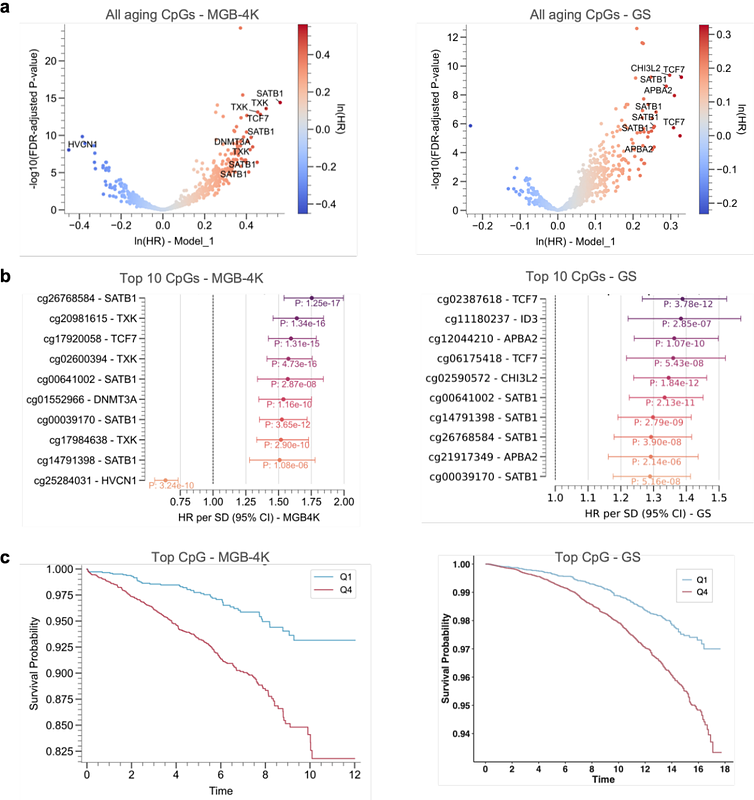Integrative epigenetics and transcriptomics identify aging genes in human blood

Integrative epigenetics and transcriptomics identify aging genes in human blood
Moqri, M.; Poganik, J. R.; Herzog, C.; Ying, K.; Chen, Q.; Emamifar, M.; Tyshkovskiy, A.; Alec, E. W.; Mur, J.; Matei-Dediu, B.; Goeminne, L.; Mitchell, W.; McCartney, D. L.; Marioni, R. L.; Lasky-Su, J. A.; Snyder, M.; Gladyshev, V. N.
AbstractRecent epigenome-wide studies have identified a large number of genomic regions that consistently exhibit changes in their methylation status with aging across diverse populations, but the functional consequences of these changes are largely unknown. On the other hand, transcriptomic changes are more easily interpreted than epigenetic alterations, but previously identified age-related gene expression changes have shown limited replicability across populations. Here, we develop an approach that leverages high-resolution multi-omic data for an integrative analysis of epigenetic and transcriptomic age-related changes and identify genomic regions associated with both epigenetic and transcriptomic age-dependent changes in blood. Our results show that these \'multi-omic aging genes\' in blood are enriched for adaptive immune functions, replicate more robustly across diverse populations and are more strongly associated with aging-related outcomes compared to the genes identified using epigenetic or transcriptomic data alone. These multi-omic aging genes may serve as targets for epigenetic editing to facilitate cellular rejuvenation.


